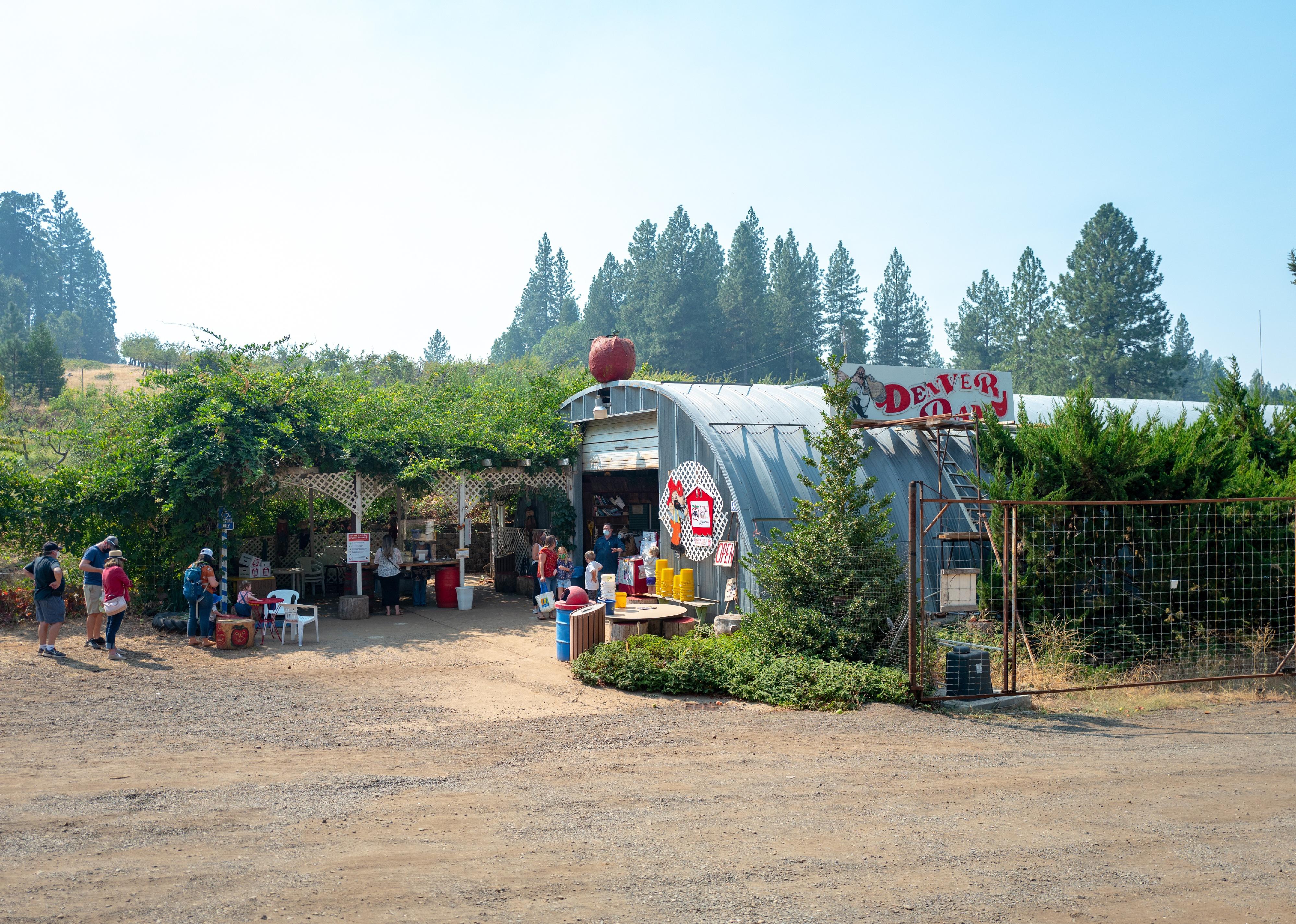
3 most common Small Business Administration loans—and which type might be good for your business
This story originally appeared on Ruby and was produced and distributed in partnership with Stacker Studio.
3 most common Small Business Administration loans—and which type might be good for your business
At more than 32.5 million strong, small businesses account for 99.9% of all American businesses. To help support these small but mighty drivers of the American economy—which collectively employ more than 45% of the nation's labor force—the Small Business Administration offers a variety of business loans to help them grow and succeed.
Of course, small business owners have plenty of options for funding beyond the SBA. From personal loans and business credit cards to a line of credit at a large bank, there is no shortage of options for an infusion of cash. But when it comes to some of the most competitive loans with lower interest rates for large loan amounts, SBA loans are among the most highly sought after.
The SBA, a government agency founded to help spur small business economic activity, disburses funding by partnering with private financial institutions such as banks or credit unions. It acts as a guarantor for the loan, ranging from a portion to the total borrowing amount. This makes it possible for institutional lenders to offer borrowers favorable financing options because they carry a low risk of losing their investment if the business fails.
In other words, by backing the debt that a small business takes on, the SBA lowers the barriers that often stand in the way of being approved for a bank loan.
Today, a small business owner may apply for one of several SBA loan options, depending on their business situation and need. The majority of for-profit businesses qualify for SBA funding.
To better understand the funding available, Ruby used information from the SBA, Congressional Research Service, and other industry sources to compare the agency's top three most popular small business loan programs and their benefits. The analysis includes maximum loan amounts, loan count and values in the fiscal years of 2021 and 2022, demographics of loan recipients, typical loan uses, and other notable factors.

7(a) loans
Named after its section number under the Small Business Act, the 7(a) loan is the SBA's flagship loan program and also the most popular. In 2022, the agency issued 47,678 7(a) loans with a total value of $25.7 billion. Historically, white male business owners have comprised the majority of loan recipients and, since 2017, minority- and women-owned businesses have only seen modest gains. In 2022, minority-owned business owners were approved for 32% of 7(a) loan capital (up from 30% five years ago), and majority women-owned businesses captured 15% (up from 14% five years ago).
Capped at $5 million per borrower, 7(a) loans have an interest rate between 6% to 10%. There are several requirements that a small business owner needs to meet for approval, including proof that you've exhausted alternative funding sources, built up reasonable equity in the business, and have a good personal credit score.
In addition to providing capital for long- and short-term business operations, the loan is primarily for owners who plan to make significant purchases such as equipment, real estate, or land; expand or acquire another business; invest in constructing or renovating an office building; or refinance debt. The loan can finance all or one of these funding needs, so it's a good option for borrowers who need to fund multiple kinds of growth. Put another way, borrowers don't need to apply for multiple loans at different rates for different purposes.
The 7(a) loan is also an appealing option for owners planning to purchase real estate. The loan offers a longer repayment period of up to 25 years, which can be ideal for real estate investing, which usually takes years, or even decades, to pay off.

504 loans
The 504 loan program offers long-term financing at a fixed rate for assets promoting business growth or job creation. These loans are unique because they represent partnerships between a nonprofit Certified Development Company—a community-based business regulating nonprofits while promoting economic development—and a standard lender. The SBA regulates CDCs, which administer the SBA part of a loan.
504s may be used to "purchase or renovate capital assets (land, buildings, equipment), and [r]efinancing [is] permitted," according to the SBA. Generally speaking, qualifying for these loans is straightforward. An individual business can typically borrow up to $5 million in 504 loans (though some projects qualify for as much as $5.5 million); fixed interest rates for 504 loans range from 6.47-6.54%, depending on the loan maturity.
Unlike 7(a) loans, businesses must access 504 loans via the CDC and only use the money to finance fixed assets, which are items needed to operate the business over time, such as company vehicles, machinery, or a building. 504 loans usually feature interest rates below prevailing market rates.
In the fiscal year 2022, the SBA approved 9,254 loans with a value of $9.2 billion in total. Minority-owned businesses captured 24% of the 504 loans and 27% of loan dollars; majority women-owned businesses captured 12% of the 504 loans and 10% of loan dollars.

Microloans
Microloans represent some of the easiest SBA loans to get for small businesses, but are the smallest loans it offers with a cap of $50,000. The average microloan amount is $13,000, and the purpose of these smaller funding packages is to help a small business keep its doors open through "marketing, management, and technical assistance to microloan borrowers and potential borrowers," according to the SBA. Interest rates range from 8% to 13%.
A microloan may be appropriate for an owner of a new or existing business that needs a boost to achieve shorter-term goals such as launching or expanding operations. Unlike other SBA offerings, these microloans are also the most friendly to startups, as an applicant does not have to present the financial history of the business—having two years of industry experience, collateral, and a solid business plan are among the criteria instead.
Another requirement for SBA microloans is "good character," measured by whether an applicant has a history of theft and fraud, among other crimes. (However, a criminal record does not automatically disqualify someone—it just might take more work to win over lenders). Interestingly, research suggests that, contrary to the popular assumption about the character traits of successful business owners, having an extroverted or neurotic personality traits does not make them more likely to secure a SBA microloan. A 2021 quantitative study of 177 small business owners found no strong correlation between successful microloan approvals and extrovert traits such as being sociable, talkative, and assertive, which are often associated with successful startup founders and business owners.
While the least popular loans compared to 7(a) or 504 loans, microloans disburse the most money to women- and minority-owned small businesses. Data from 2022 is not yet available as of publication, but the Congressional Research Service data shows that in 2021, SBA approved 4,510 loans valued at $74.6 million; 61% of loans and 41% of loan dollars were awarded to minority-owned small businesses, and 48% of loans and 41% of loan dollars were awarded to women-owned businesses.



